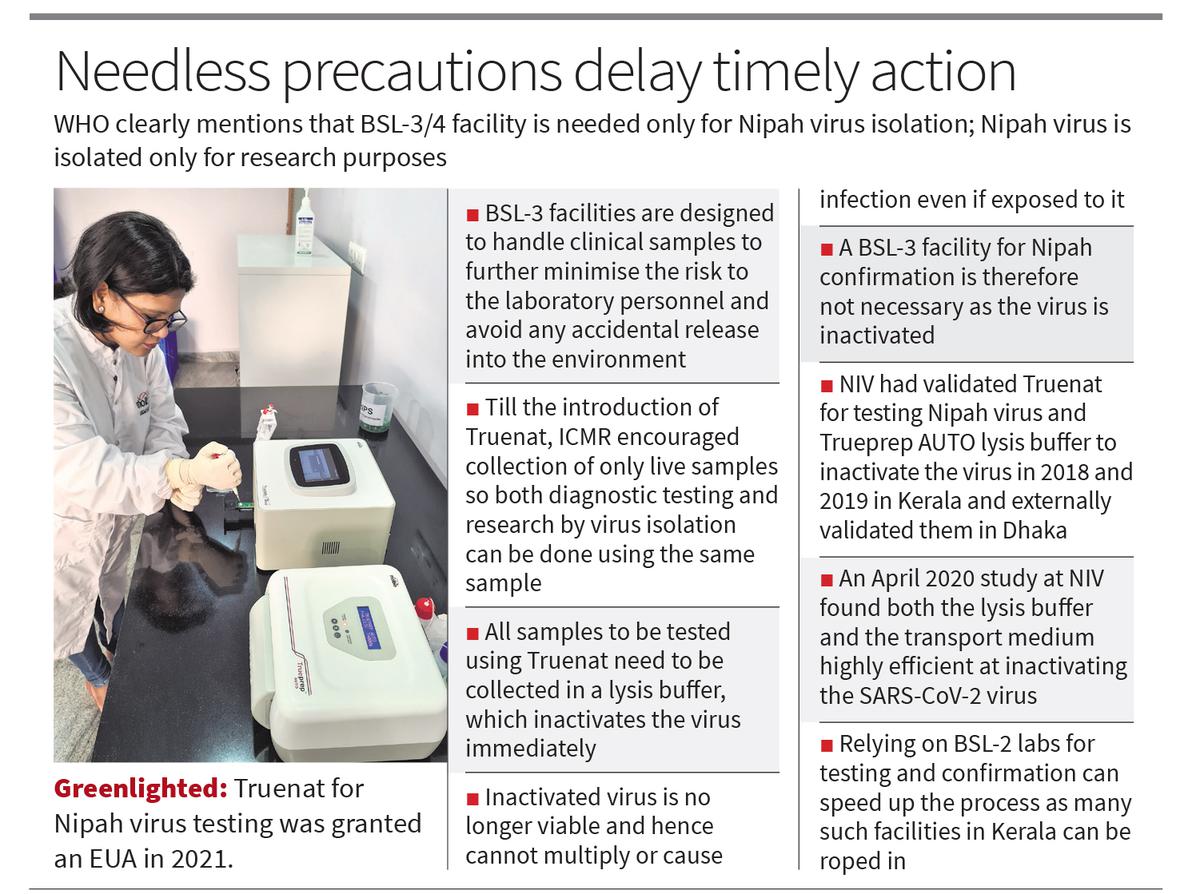Probing the gender of a King Cobra at Pilikula Biological Park, in Mangaluru.
| Photo Credit: SPECIAL ARRANGEMENT
Pilikula Biological Park in Mangaluru, one of the major zoos in India, has taken up tagging of select species of wild animals under captivity by implanting microchips.
At present, microchipping of King Cobras selected for captive breeding is in progress. Other select species of animals will be tagged with microchips shortly, according to park Director H. Jayaprakash Bhandary.
The park has more than 1,200 wild animals, including mammals, birds and reptiles. In addition to King Cobras, many other animals and birds have been breeding at the park. The main objectives of the zoo are conservation, education and scientific research of wild animals, he said.
Why implant microchips
Since most animals of a species look identical, microchipping helps identify them. During captive breeding, he said, avoiding in-breeding is important. Implanting microchips helps prevent in-breeding through identification of individuals during breeding, Mr. Bhandary explained.
Implanting a microchip in a King Cobra at Pilikula Biological Park, in Mangaluru.
| Photo Credit:
SPECIAL ARRANGEMENT
A microchip is a tiny electronic device implanted under the subcutaneous layer of skin. Microchips have a separate receiver, which consists of a hand-held scanner. Name of each animal and transponder numbers are recorded in a stud book, the Director said.
Tagging of tigers, lions
He said that tigers, lions, and panthers will be implanted with microchips next. Other species selected for tagging include Stripped hyena, Wild dog, Indian grey wolf, Sloth bear and crocodiles of Gharial and Nile species.
While taking up the implanting process, gender of King Cobras and other animals is identified. The length, weight and height of animals will also be recorded.
Measuring and recording the length of a King Cobra at Pilikula Biological Park, in Mangaluru.
| Photo Credit:
Special Arrangement
DNA testing is done to determine the sex of birds, Mr. Bhandary said.
The park is using imported microchips. The microchipping of all animals will be completed in a month.
“Scientific procedure of implanting microchips is carried out in the veterinary hospital of the zoo. Implanted microchips can last till the life-time of an animal,” he said.
Captive breeding of King Cobras
Pilikula Biological Park is the only one in India to get permission from the Central Zoo Authority for captive breeding of King Cobras. The captive breeding project was first sanctioned in 2010-11. They got permission for the second time in 2021-22, Mr. Bhandary told The Hindu.
The captive breeding, or conservative breeding, process comprises creating an artificial condition for mating, gestation and incubation periods, as well as hatching and rearing the neonates till about a year.
The park has facilitated the birth of hundreds of baby King Cobras in captivity in the Western Ghats in the interest of conservation.










